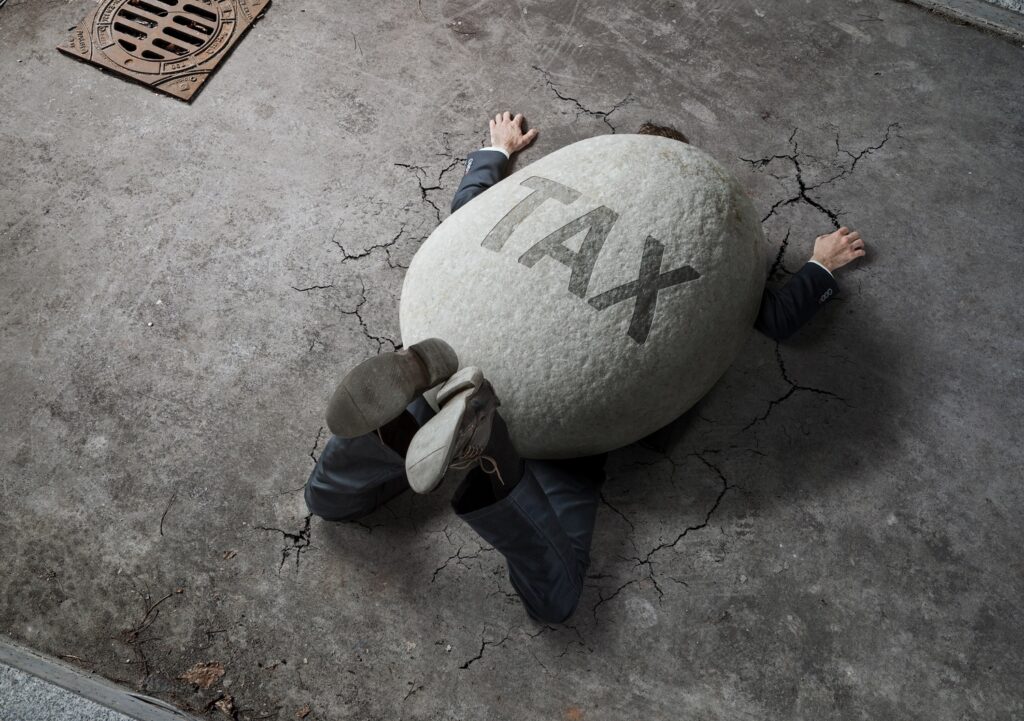Blog
Swap and Save — No Taxes, Just Gains!

Many companies face significant challenges when it comes to investing and expanding due to the heavy burden of taxes. High tax rates and complicated tax regulations often drain valuable capital, making it difficult for businesses to reinvest in operations, innovation, and growth. Instead of focusing on strategic expansion, companies are forced to allocate resources to cover tax obligations, reducing profitability and limiting competitiveness.
The passage of Republic Act (R.A.) No. 11534 otherwise known as (“CREATE Law” or Corporate Recovery and Tax Incentives for Enterprises Law) has made it significantly easier for companies to invest and expand, particularly through tax-free exchanges.
Tax-free exchanges refer to those instances enumerated in the Tax Code1 that are not subject to Income Tax, Capital Gains Tax, Documentary Stamp Tax and/or Value-added Tax, as the case may be. However, the original issuance of shares in exchange for the properties transferred shall be subject to the DST.2
In general, there are two kinds of tax-free exchange: (1) reorganization; and (2) transfer to a controlled corporation.3
In the first instance, no gain or loss shall be recognized on a corporation or on its stock or securities if such corporation is a party to a reorganization and exchanges property in pursuance of a plan of reorganization solely for stock or securities in another corporation that is a party to the reorganization.
In the second instance, no gain or loss shall be recognized if property is transferred to a corporation by a person, alone or together with others, not exceeding four (4) persons, in exchange for stock or unit of participation in such a corporation of which as a result of such exchange the transferor or transferors, collectively, gains or maintains control of said corporation.
Venue for the Issuance of the Certificate Authorizing Registration (CAR)
For purposes of the issuance of the CAR for the transferred properties pursuant to the tax-free reorganization/exchange, the parties to the transaction shall submit the documentary requirements to the Revenue District Office (RDO) having jurisdiction over the place where the property is located, in case of a real property, or in case of shares of stock, the RDO where the issuing corporation is registered.
In case the transaction involves transfer of multiple real properties and/or shares of stocks situated in various locations covered by different RDOs, the CAR shall be processed with the RDO having jurisdiction over the place where the transferee corporation is registered.
The CAR should specify, among others, that the transaction involved is a tax-free exchange under Section 40(C)(2) of the NIRC of 1997, as amended, the date of transaction, and the substituted basis of the properties subject therefor.
Conduct of Post-Transaction Audit
Following issuance of the corresponding CAR on the transactions falling under tax free exchange, the concerned RDO shall conduct a post-audit of said transactions pursuant to existing revenue issuances on tax audit and assessment, to determine the taxability thereof.
If after audit, the transaction is found to be not entitled to the tax deferment treatment under tax free exchange, the transaction shall be subject to the applicable taxes, plus interest, penalty and surcharge. However, the result of the audit shall not invalidate the CAR previously issued for the transfer of the properties.
The parties to the transaction are duty bound to prove compliance with the conditions laid down by the law and the requirements set forth under existing revenue issuances in the availment of the tax exemption.
Prior BIR Confirmation or Tax Ruling
Before CREATE Law was implemented, parties involved in a tax-free exchange were required by the BIR to obtain a tax ruling before they could qualify for tax exemption.4 However, in 2020, the Supreme Court ruled in the case of Commissioner of Internal Revenue v. Lucio Co, et al.5 that this requirement was invalid, as the Tax Code did not impose such a condition. Subsequently, Section 10 of the CREATE Act amended Section 40(c)(2) of the Tax Code, explicitly stating that securing a prior tax ruling is no longer necessary to avail of the tax exemption for a tax-free exchange transaction.
The taxpayer, however, is not precluded from requesting a ruling/legal opinion with the Law and Legislative Division (LLD) of the National Office in order to clarify legal issue/s that may affect the transactions made pursuant to tax free exchange, including the taxability of such transaction.
As a result, parties involved in a Tax-Free Exchange can now move directly to the next step after executing the necessary contracts or agreements. They can proceed with the transfer of property titles, including the application for a Certificate Authorizing Registration (CAR), without delay. However, parties should ensure that they retain all documents proving compliance with the legal requirements and relevant revenue regulations on the Tax-Free Exchange. This documentation will be essential in case of a post-transaction audit by the BIR.

This streamlined process allows corporations to reinvest their assets more efficiently without the immediate burden of paying taxes, preserving more capital for growth and expansion. By removing these regulatory roadblocks, the CREATE Law encourages businesses to explore new opportunities, enhance their financial strategies, and strengthen their competitive edge in the market. This has created a more business-friendly environment, making investments smoother, faster, and more profitable for corporations.Unlock business growth without the tax burden. Thanks to the CREATE Law, corporations can now restructure or expand through tax-free exchanges—no income tax, capital gains tax, VAT, or DST* on qualifying transactions. This streamlined process allows companies to preserve capital, boost efficiency, and reinvest in innovation. Discover how tax-free exchanges work, when they apply, and how AJA Law can help you execute them smoothly and compliantly.
If you need any assistance in understanding or implementing the guidelines related to Tax-Free Exchanges, please feel free to reach out to our law firm. We are here to provide expert legal advice and guidance to help you navigate the complexities of tax-free transactions. Let us partner with you to ensure that your exchange process is smooth, compliant, and beneficial for your business growth.
Prepared by April Roma.
FOOTNOTES
- Section 40(C)(2) of the NIRC of 1997, as amended
- Section 174, Id.
- RMC No. 19-2022
- Revenue Memorandum Ruling No. 1-2002
- GR No. 241424, February 26, 2020


